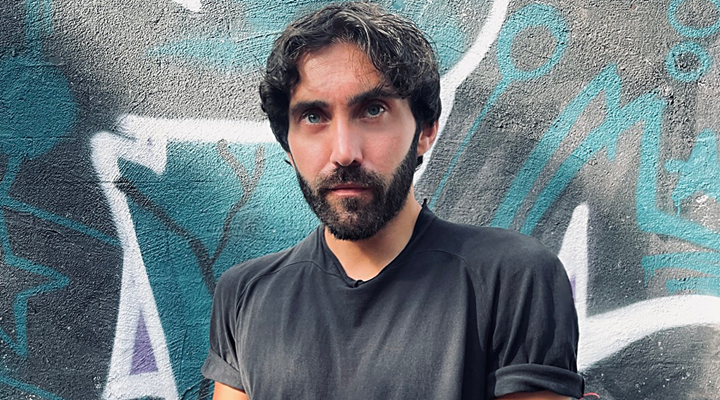Editor’s note: Following the publication of this article on March 21, Alex Anton exited July on April 18, citing irreconcilable creative and strategic differences. He has resumed his previous position as CMO of 2-Times. Australian luggage brand July has confirmed the appointment of luxury marketing professional Alex Anton as its vice president of brand, a newly created role that underscores the retailer’s ambition to become a globally recognised name in the travel space. Anton brings wit
gs with him several years of experience in the luxury sector, including stints with the French multinational LVMH and Chalhoub Group, a privately held luxury goods retailer and distributor, headquartered in the UAE.
In 2012, he co-founded the luxury e-commerce site 2-Times, an invite-only luxury online retailer and event-based private shopping service with offices in Australia, Hong Kong and Singapore, with his twin brother Luke Anton.
After holding various roles at 2-Times, most recently as its CMO, Anton has stepped away from the business to join July. He officially started on Monday.
Anton told Inside Retail that he was approached by a headhunter and became interested in the brand after learning about its partnership with the Paris Olympics – July is the official luggage supplier of the Australian Olympic Team – and the quality of its international stockists, including Selfridges in the UK and Lane Crawford in Hong Kong.
“I think that this is an exciting phase for any luggage brand, but especially one that’s part of the Australian Olympic Team in Paris and creating a lot of noise in the space,” he said.
Given his background in luxury, he believes he can help July move more upmarket and target a higher-price point shopper, and at the same time, he sees an opportunity to challenge leading luggage players.
“It’s a pretty tired category,” he said. “Even Rimowa, it’s a bit stale.”
Anton is qualified to pass judgment, having worked on the Rimowa brand during his time consulting to LVMH.
Global growth
One of Anton’s key areas of focus at July will be the brand’s US expansion. After launching a pop-up store in New York City in November, July is looking to open a second pop-up in Los Angeles this year and eventually set up an office there.
To succeed in the US, Anton said the brand will need to work on differentiating itself from the competition, particularly Away, the American direct-to-consumer luggage brand that launched in 2015.
This will require continued product development and technological innovation, as well as changes to the brand’s marketing strategy.
“We need to create better and more beautiful campaigns,” he said.
Beyond the US market, the brand has new distribution partners in South Korea and Taiwan, and e-commerce sites in New Zealand and the UK.
The vision has always been to build a global brand, July co-founder and chief strategy officer Athan Didaskalou told Inside Retail, and with Anton on board, it’s that much closer to becoming a reality.
“Richard and I are excited to have Alex join the July team and drive our global growth,” Didaskalou said.
“With his experience across luxury brands and international markets – Alex will continue to establish our presence on the global stage and ensure hands everywhere have July products in them.”
From $5 million to $150 million
Founded as a digital-first brand in Melbourne in 2018, July now has eight brick-and-mortar stores in Australia and a growing range of suitcases, bags and travel accessories.
In addition to carry-on and checked luggage, July offers totes, weekend bags and backpacks, as well as packing cells, toiletry bags, luggage covers and more.
The business nearly went under during the Covid pandemic, when both domestic and international travel ground to a halt in Australia. Recently, however, it has benefitted from the aestheticization of travel, which is driving a growing number of consumers to invest in visually pleasing luggage as part of an overall travel ‘look’ that they document on social media.
After generating approximately A$5 million in its first year in operation, July said it was expecting to generate A$150 million in annual revenue last year.

